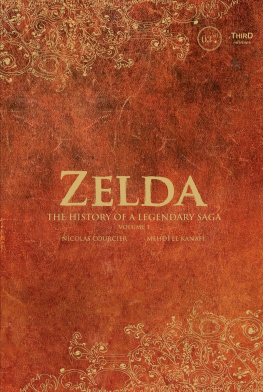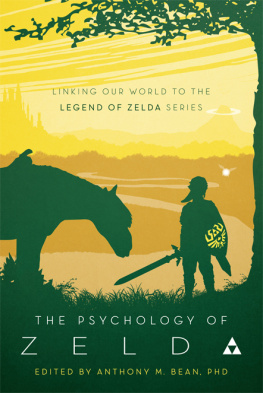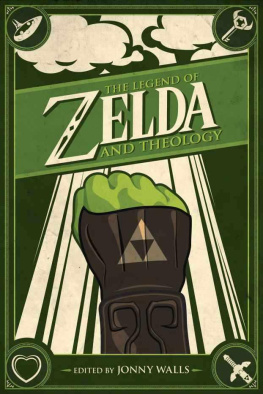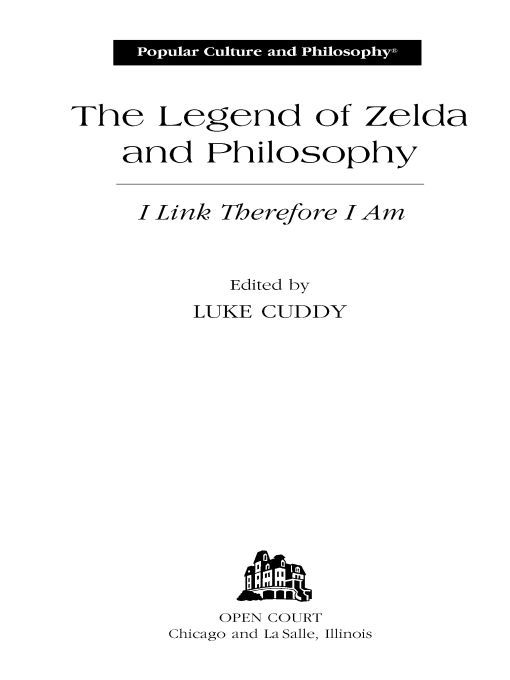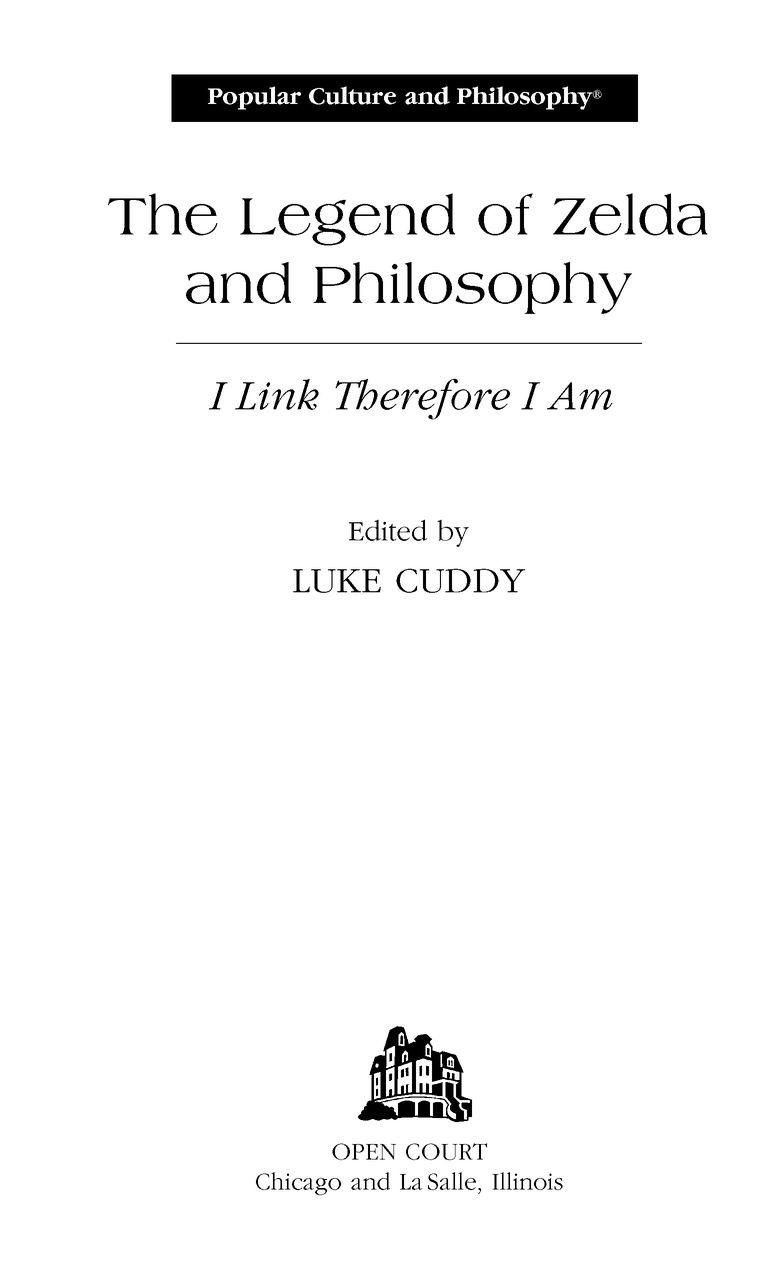Table of Contents
Popular Culture and Philosophy Series Editor: George A. Reisch
VOLUME 1
Seinfeld and Philosophy: A Book about Everything and Nothing (2000)
VOLUME 2
The Simpsons and Philosophy: The Doh! of Homer (2001)
VOLUME 3
The Matrix and Philosophy: Welcome to the Desert of the Real (2002)
VOLUME 4
Buffy the Vampire Slayer and Philosophy: Fear and Trembling in Sunnydale (2003)
VOLUME 5
The Lord of the Rings and Philosophy: One Book to Rule Them All (2003)
VOLUME 6
Baseball and Philosophy: Thinking Outside the Batters Box (2004)
VOLUME 7
The Sopranos and Philosophy: I Kill Therefore I Am (2004)
VOLUME 8
Woody Allen and Philosophy: You Mean My Whole Fallacy Is Wrong? (2004)
VOLUME 9
Harry Potter and Philosophy: If Aristotle Ran Hogwarts (2004)
VOLUME 10
Mel Gibsons Passion and Philosophy: The Cross, the Questions, the Controversy (2004)
VOLUME 11
More Matrix and Philosophy: Revolutions and Reloaded Decoded (2005)
VOLUME 12
Star Wars and Philosophy: More Powerful than You Can Possibly Imagine (2005)
VOLUME 13
Superheroes and Philosophy: Truth, Justice, and the Socratic Way (2005)
VOLUME 14
The Atkins Diet and Philosophy: Chewing the Fat with Kant and Nietzsche (2005)
VOLUME 15
The Chronicles of Narnia and Philosophy: The Lion, the Witch, and the Worldview (2005)
VOLUME 16
Hip Hop and Philosophy: Rhyme 2 Reason (2005)
VOLUME 17
Bob Dylan and Philosophy: Its Alright Ma (Im Only Thinking) (2006)
VOLUME 18
Harley-Davidson and Philosophy:
Full-Throttle Aristotle (2006) Edited by Bernard E.
Rollin, Carolyn M. Gray, Kerri Mommer, and Cynthia Pineo
VOLUME 19
Monty Python and Philosophy: Nudge Nudge, Think
Think! (2006) Edited by Gary L. Hardcastle and George A Reisch
VOLUME 20
Poker and Philosophy: Pocket Rockets and Philosopher Kings (2006) Edited by Eric Bronson
VOLUME 21
U2 and Philosophy: How to Decipher an Atomic Band (2006) Edited by Mark A. Wrathall
VOLUME 22
The Undead and Philosophy: Chicken Soup for the
Soulless (2006) Edited by Richard Greene and K. Silem Mohammad
VOLUME 23
James Bond and Philosophy: Questions Are Forever (2006) Edited by James B. South and Jacob M. Held
VOLUME 24
Bullshit and Philosophy: Guaranteed to Get Perfect
Results Every Time (2006) Edited by Gary L.
Hardcastle and George A. Reisch
VOLUME 25
The Beatles and Philosophy: Nothing You Can Think that Cant Be Thunk (2006) Edited by Michael Baur and Steven Baur
VOLUME 26
South Park and Philosophy: Bigger, Longer, and More
Penetrating (2007) Edited by Richard Hanley
VOLUME 27
Hitchcock and Philosophy: Dial M for Metaphysics
(2007) Edited by David Baggett and William A. Drumin
VOLUME 28
The Grateful Dead and Philosophy: Getting High
Minded about Love and Haight (2007) Edited by Steven Gimbel
VOLUME 29
Quentin Tarantino and Philosophy: How to Philosophize with a Pair of Pliers and a Blowtorch (2007) Edited by Richard Greene and K. Silem Mohammad
VOLUME 30
Pink Floyd and Philosophy: Careful with that Axiom, Eugene! (2007) Edited by George A. Reisch
VOLUME 31
Johnny Cash and Philosophy: The Burning Ring of Truth (2008) Edited by John Huss and David Werther
VOLUME 32
Bruce Springsteen and Philosophy: Darkness on the Edge of Truth (2008) Edited by Randall E. Auxier and Doug Anderson
VOLUME 33
Battlestar Galactica and Philosophy: Mission Accomplished or Mission Frakked Up? (2008) Edited by Josef Steiff and Tristan D. Tamplin
VOLUME 34
iPod and Philosophy: iCon of Our ePoch (2008) Edited by D.E. Wittkower
VOLUME 35
Star Trek and Philosophy: The Wrath of Kant (2008)
Edited by Jason T. Eberl and Kevin S. Decker
VOLUME 36
The Legend of Zelda and Philosophy: I Link Therefore I Am (2008) Edited by Luke Cuddy
IN PREPARATION:
The Wizard of Oz and Philosophy (2008) Edited by Randall E. Auxier and Phillip S. Seng
Jimmy Buffett and Philosophy (2009) Edited by Erin McKenna and Scott L. Pratt
Stephen Colbert and Philosophy (2009) Edited by Aaron Allen Schiller
Radiohead and Philosophy (2009) Edited by Brandon Forbes and George A. Reisch
The Golden Compass and Philosophy (2009) Edited by Richard Greene and Rachel Robison
This one goes out to the Livermore and Chico gamers, and the Cuddys east and west, all of whom made this book possible through their direct, and in some cases indirect, support. Oh yeah, and Shigeru Miyamotocant forget about him.
Acknowledgments
First, of course, I owe the authors a debt of gratitude for supporting this project from the beginning. A work like this doesnt get off the ground without capable and willing writers. If it wasnt for George Reisch, this bookat least in its current formwouldnt exist, so my debt to him and the other folks at Open Court is immeasurable, including Eric Reitz and David Ramsay Steele. Im also thankful for the support of the philosophy department at San Diego State University. In particular, Steve Barbone provided very valuable comments, criticisms, and advice from day one. Im grateful, too, to Robert Arp for his advice early on and to Richard Greene for his advice in the later stages.
Setting Up the Game
LUKE CUDDY
A waterfall cascades down a rocky mountain range in the opening screen for the original Zelda (The Legend of Zelda, Nintendo, 1986).
The criticisms leveled at videogames are familiar to us all, whether were criticizing them ourselves or defending our favorite titles against the Luddites. Images of pubescent kids with Super Mario Brothers shirts fiercely wielding Nintendo controllers abound. At one point it might have been appropriate to call videogames a social outcast, analogous to the proverbial high school loner quietly consuming the thin ham slices in his lunchable, watching the popular kids enviously from afar.
And yet, despite being cast aside by some, videogames have settled into their own cultural nichea niche that, since its inception some three decades past, has leaked through and corroded pop culture like a divine solvent, inciting the admiration and devotion of a generation. This profound cultural movement has resulted in subcultures of die-hard, ultra-devoted fans of specific games.
One of the most popular and pervasive subcultural divisions is the one owing its allegiance to the




